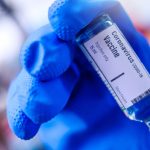

Second COVID-19 vaccine gains regulatory approval for use in the UK

A second COVID-19 vaccine has been approved for use in the UK and will begin to be rolled out from next week.
The AstraZeneca/Oxford University vaccine has been given the green light for emergency supply by the UK Medicines and Healthcare Products Regulatory Agency (MHRA).
From Monday, January 5, the first of the 100 million doses ordered by the UK — enough to immunise 50 million people — will be sent out to health boards.
First Minister Nicola Sturgeon said the “light at the end of the tunnel just got a lot brighter” but urged people to stick to the current restrictions amid rising COVID-19 cases.
“Let’s stick with it now — Spring will bring better times,” she said on Twitter.
Matt Hancock, UK secretary of state for health and social care, said: “This is a moment to celebrate British innovation — not only are we responsible for discovering the first treatment to reduce mortality for COVID-19, this vaccine will be made available to some of the poorest regions of the world at a low cost, helping protect countless people from this awful disease.
“It is a tribute to the incredible UK scientists at Oxford University and AstraZeneca whose breakthrough will help to save lives around the world. I want to thank every single person who has been part of this British success story.
“While it is a time to be hopeful, it is so vital everyone continues to play their part to drive down infections.”
Unlike the Pfizer/BioNTech vaccine which has to be stored at -70 degrees, this new vaccine is much easier to store, transport and handle.
It can be stored in a standard fridge for at least six months and can also be administered within existing healthcare settings.
The vaccine uses a weakened version of a common cold virus that causes infections in chimpanzees and contains the genetic material of the COVID-19 virus spike protein.
After vaccination, the surface spike protein is produced, priming the immune system to attack the COVID-19 virus if it later infects the body.
Clinical trials have shown differing levels of protection.
The first analysis of the trial data showed 70 per cent of people were protected from developing COVID-19 and nobody developed severe disease or needed hospital treatment.
The figure dropped to 62 per cent when people were given two full doses of the jab and 90 per cent when they were first given a half dose and then a full one.
Unpublished trial data has suggested that the effectiveness of the jab is increased by leaving a longer gap between the first and second doses.
MHRA has approved two full doses with an interval of between four to 12 weeks later between jabs.
The safety data published so far is from over 20,000 participants enrolled across four clinical trials in the UK and Brazil and South Africa.
AstraZeneca aims to supply millions of doses in the first quarter of 2021.
Pascal Soriot, chief executive officer, said: “Today is an important day for millions of people in the UK who will get access to this new vaccine.
“It has been shown to be effective, well-tolerated, simple to administer and is supplied by AstraZeneca at no profit.
“We would like to thank our many colleagues at AstraZeneca, Oxford University, the UK Government and the tens of thousands of clinical trial participants.”